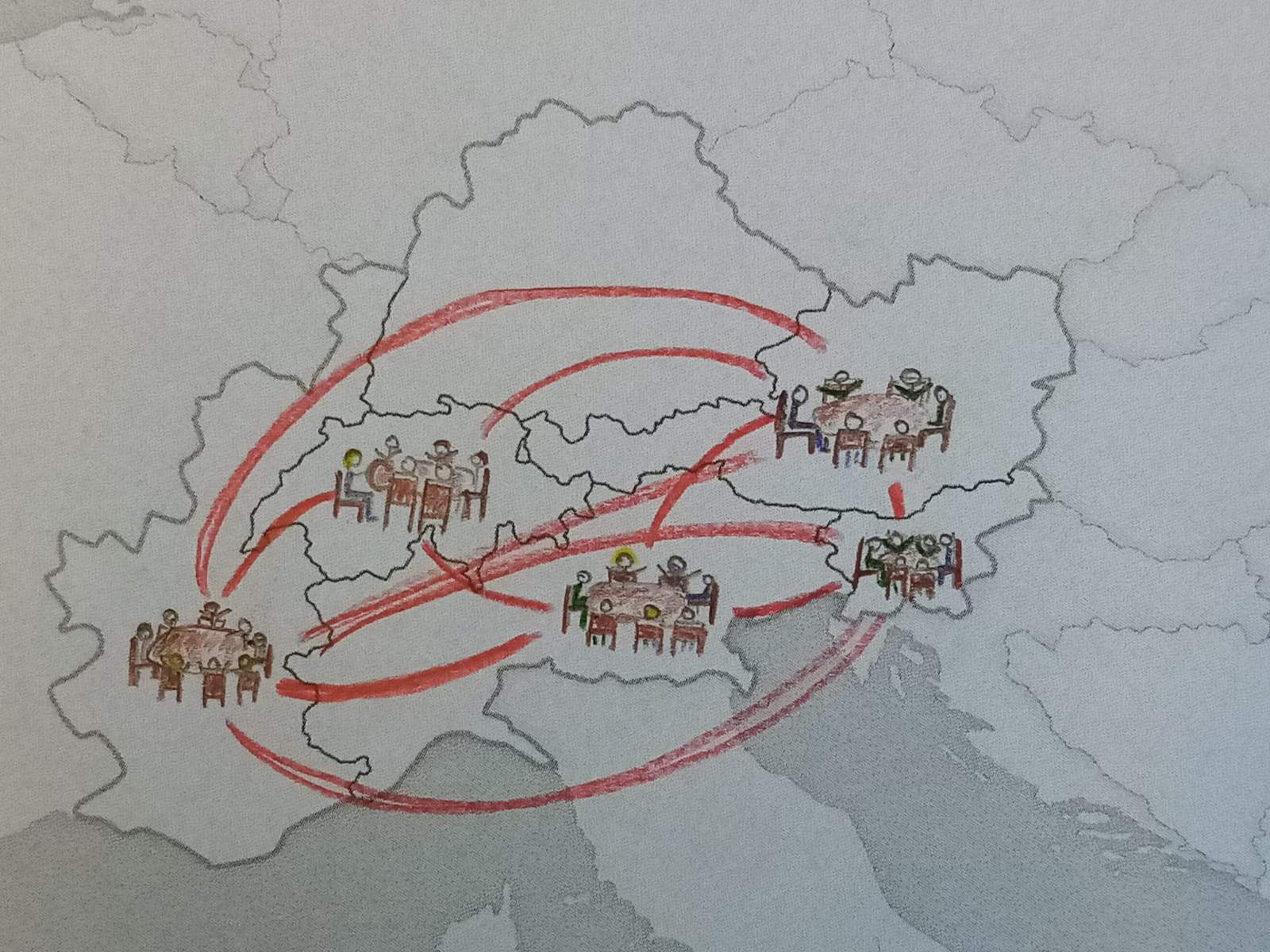Authors: Leonie Hasenauer, Annemarie Polderman, Andreas Haller
Transdisciplinarity is at the heart of TranStat – Transitions to Sustainable Ski Tourism in the Alps of Tomorrow. In order to address global and place-specific challenges, and to develop scenarios that are desirable to the inhabitants, the experiences and ideas of multiple stakeholders of national, regional and local scales are needed. To ensure that the project can both profit from previous scientific findings and that future projects can benefit from TranStat’s experiences, researchers and other partners from the Alpine space with different thematic backgrounds are united both digitally and physically.
The Institute for Interdisciplinary Mountain Research of the Austrian Academy of Sciences (IGF/ÖAW) works at the interface of sciences and humanities and aims to transfer research into practice. Over the time period of 15 years, it has been a (lead) partner in many projects, gaining experience in participatory environmental planning and sustainable development.
In TranStat, the IGF/ÖAW team is responsible for developing the Stakeholder-driven Transition Method (STM): A comprehensive co-creation method, which is adapted to specific contexts by local stakeholders. To support the transition towards a more sustainable, desirable future in the living labs and also in other destinations, the IGF/ÖAW is monitoring the implementation and documents how the following stages evolve to compile a “cookbook”:
identification of drivers of change
implementation of living labs (working groups, composed of stakeholders with different backgrounds)
co-creation activities
dissemination of the approach and methodology to different stakeholders
Fostering co-creation in TranStat
Faced with climate change, biodiversity loss, changing socio-political and socio-economic conditions, mountain destinations are increasingly under pressure to find new development strategies. Multi-faceted challenges can be addressed through co-creative settings, in which different types of knowledges are combined. Co-creation is a collaborative effort, whereby researchers and stakeholders work together to either generate knowledge, a product or solution to a problem. A process can be divided into the stages of co-design, co-development, co-implementation and co-monitoring. One of the first steps is the formation of a team with stakeholders. To foster transparency and satisfaction, mutual expectations, objectives and the required time and resources for a successful collaboration need to be clarified at the beginning of the co-creative team work. Activities to reach the goal can be planned jointly, and the application of different methods helps to gain inputs from all the participants. Monitoring stakeholders’ satisfaction provides information for the design of further activities and the results can improve future co-creation projects.
Preparations have been undertaken to kick off the co-creation processes in the different destinations that take part in TranStat: The IGF/ÖAW team discussed the key aspects of co-creation with the project partners and offers support in the selection of supportive methods and analytic tools (e.g. dilemma cafés, walking group, fish bowl, problem tree analysis, online voting, dotmocracy). A rough workshop schedule provides some orientation for possible participants but leaves the freedom for adaptations to local specifics. The project partner AlpS has analyzed local stakeholder networks and identified possible co-working stakeholders. However, any stakeholder who wants to engage in the design of future development scenarios is invited to participate. A general identification of drivers of change in mountain destinations, which was already conducted by Peter Tramberend, is going to be applied to local contexts and is going to give possible starting points for co-designed, -developed, -implemented and -monitored transition processes.
The advantages of co-creation are manifold. Since affected stakeholders are involved in the production of knowledge and solutions, they should find the results fitting to the local context and feel a sense of ownership, which fosters the implementation of transition processes.
Future event in Salzburg
The TranStat community exchanges with private, economic and political organizations in various ways. It is eager to promote the project and its findings and to gain insights into similar endeavors. One platform for exchange is going to be provided by the tourism section of the Federal Ministry of Labour and Economy, Innovation Salzburg and the Paracelsus Medical University on November 21st, 2023, in Salzburg (AT), where border-crossing Interreg-projects are going to be represented (“Touristische Inwertsetzung von grenzüberschreitenden EU-Projekten im Alpenraum”). Firstly, the event’s objective is to promote current projects and to discuss in what ways tourism might profit from the findings. Secondly, it aims at connecting projects, the federal states of Austria, destinations and regional development organizations. The IGF/ÖAW is going to present the TranStat-project, and the potential of co-created transformation processes to create and pursue sustainable, desirable future scenarios for ski destinations.



